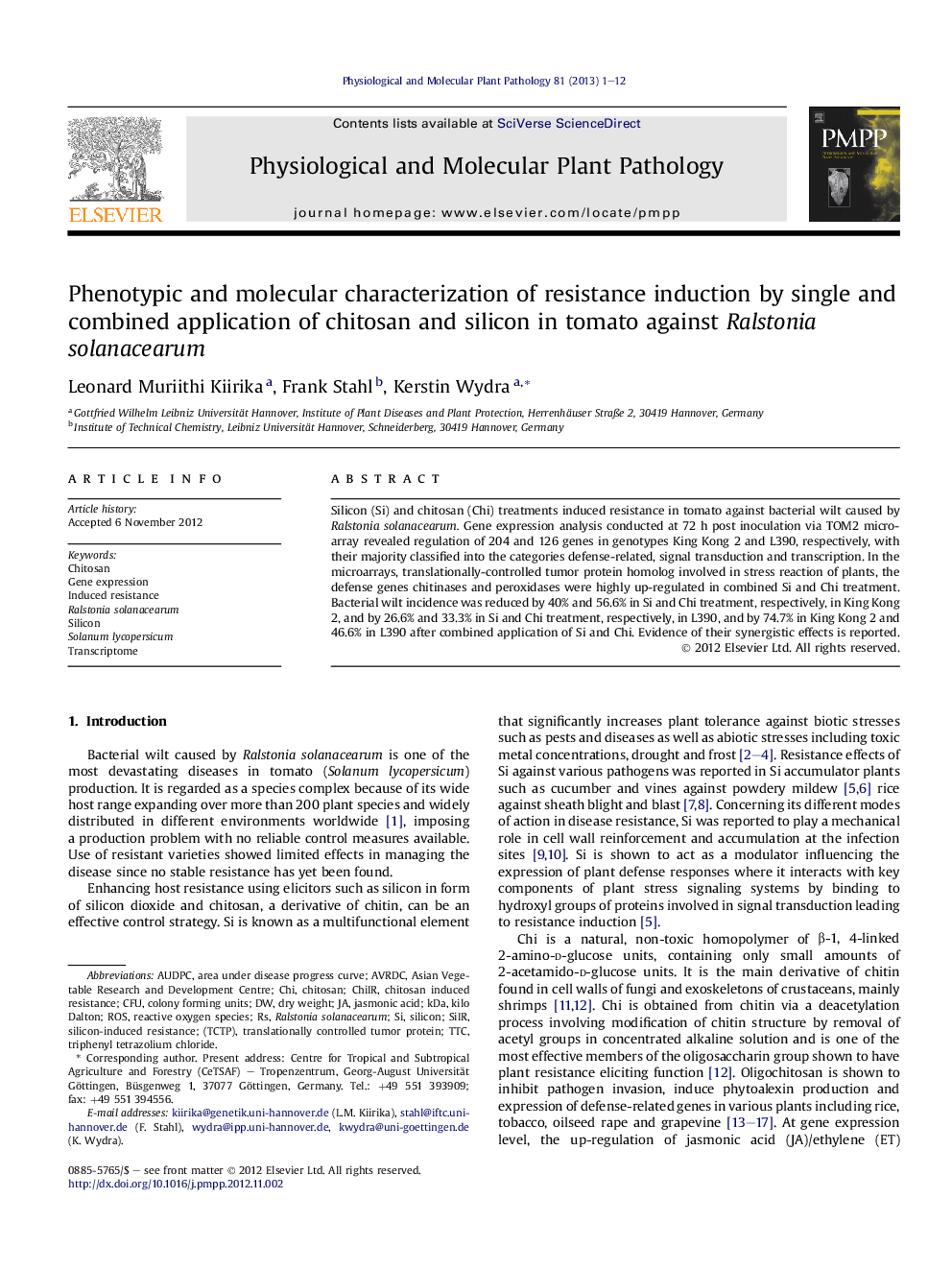| Article ID | Journal | Published Year | Pages | File Type |
|---|---|---|---|---|
| 2836420 | Physiological and Molecular Plant Pathology | 2013 | 12 Pages |
Silicon (Si) and chitosan (Chi) treatments induced resistance in tomato against bacterial wilt caused by Ralstonia solanacearum. Gene expression analysis conducted at 72 h post inoculation via TOM2 microarray revealed regulation of 204 and 126 genes in genotypes King Kong 2 and L390, respectively, with their majority classified into the categories defense-related, signal transduction and transcription. In the microarrays, translationally-controlled tumor protein homolog involved in stress reaction of plants, the defense genes chitinases and peroxidases were highly up-regulated in combined Si and Chi treatment. Bacterial wilt incidence was reduced by 40% and 56.6% in Si and Chi treatment, respectively, in King Kong 2, and by 26.6% and 33.3% in Si and Chi treatment, respectively, in L390, and by 74.7% in King Kong 2 and 46.6% in L390 after combined application of Si and Chi. Evidence of their synergistic effects is reported.
Graphical abstractFigure optionsDownload full-size imageDownload as PowerPoint slideHighlights► Silicon and chitosan induced resistance in tomato against Ralstonia solanacearum. ► Their application triggered expression of mainly defense-related genes. ► Resistance was manifested in bacteria reduction in the plant tissue and reduced plant wilting. ► When applied together, their effect against the pathogen was synergistic.
